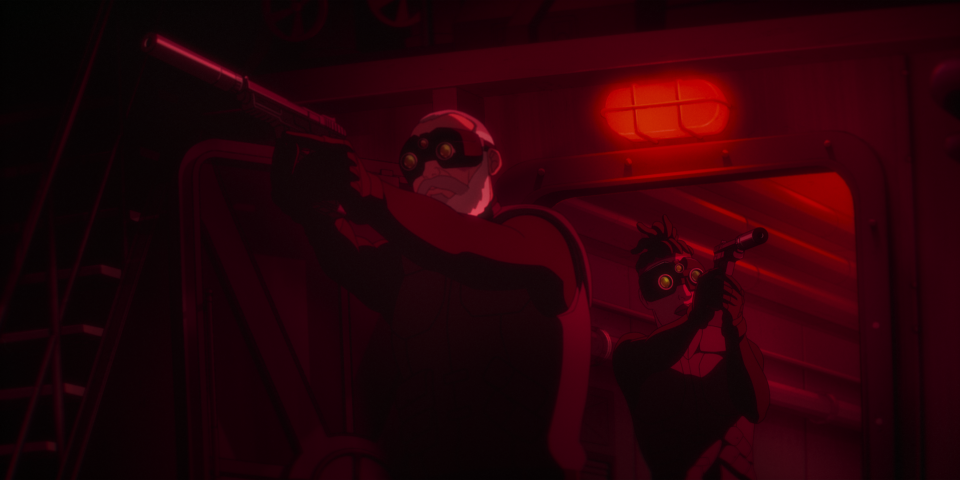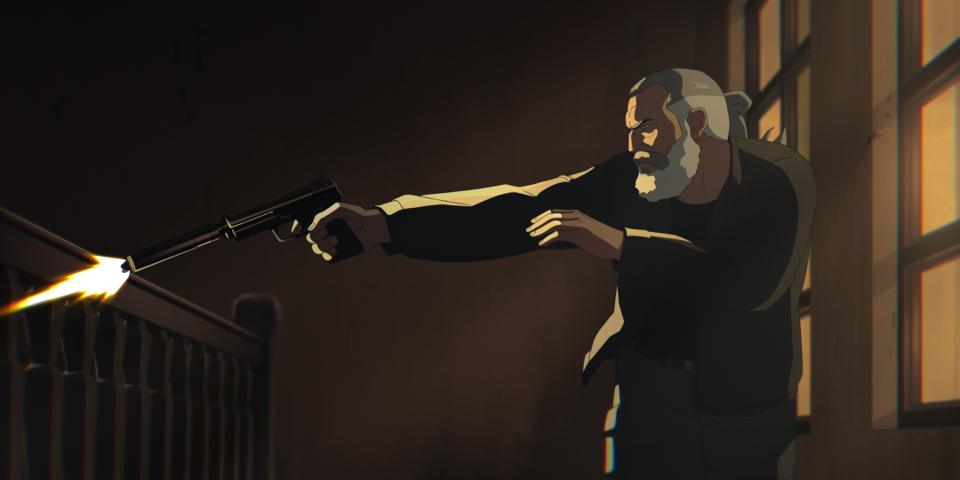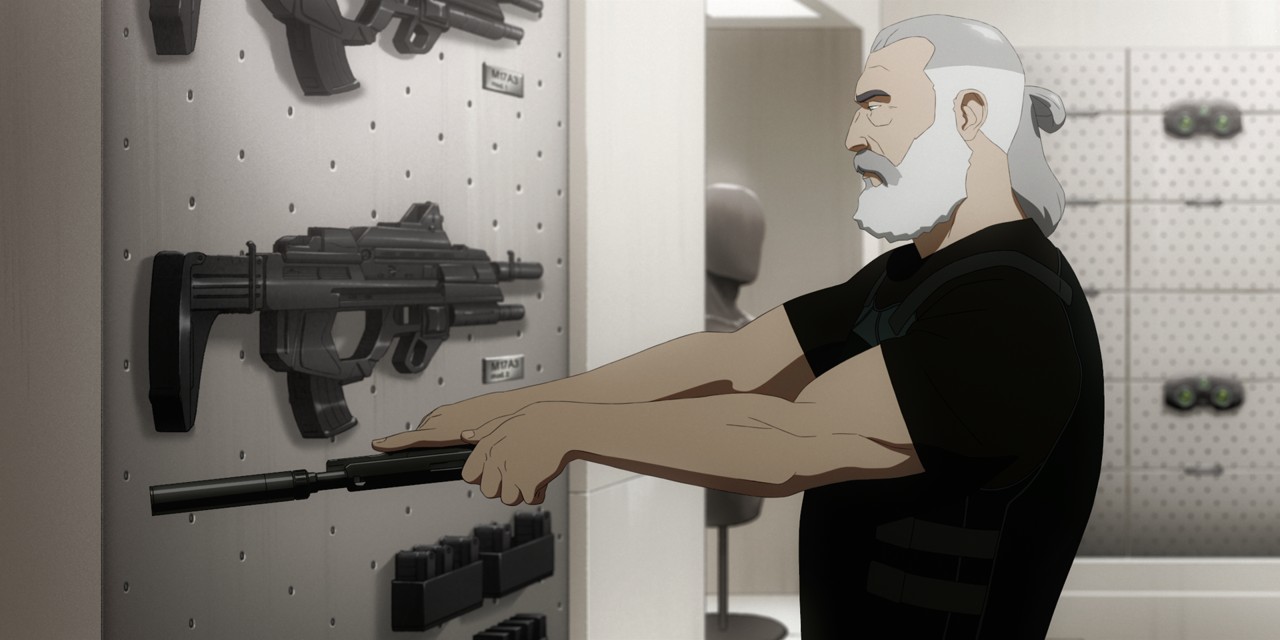Created by Derek Kolstad, Netflix’s ‘Splinter Cell: Deathwatch’ follows Sam Fisher, a veteran of the United States National Security Agency and former leader of the Fourth Echelon, a top-secret intelligence unit. Once a feared agent capable of single-handedly dismantling terrorist plots, Fisher now leads a life of semi-retirement and solitude. However, his enduring battle with crime does not simply disappear, and before long, he finds himself in the thick of things once again. The show borrows from its protagonist’s complicated past, which walks a fine line between grey and pitch black. One feature of his past in particular ends up sparking numerous threads in the present, forcing Sam to look inwards before he can neutralize any threats to human life. As the animated action thriller unfolds, the grim realities of the world come head-to-head with the question of hope and humanity that agents like Sam strive to answer.
Displace International is a Fictional Company From the Splinter Cell Video Games
While Displace International serves as the backbone to the Shetlands’ ambitions with Xanadu Island and beyond, the company itself is a fictional private military corporation. Its origins lie in the video game series, ‘Tom Clancy’s Splinter Cell,’ which doubles as the prequel to the Netflix series. Displace International first appears in ‘Tom Clancy’s Splinter Cell: Pandora Tomorrow,’ which was written by J. T. Petty and developed by Ubisoft. The show’s rendition of the corporation, which is penned by a writing team comprising Derek Kolstad, David Daitch, Katie J. Stone, Naomi G. Davis, Anthony Florez, and others, carries its basic constituent elements forward, while also adding a unique spin of its own. Most notably, both versions of the corporation are founded by the same character, Douglas Shetland, an old friend turned foe of Sam. However, the key difference lies in how the company’s rise and fall are portrayed in both narratives.

In the original video game series, Displace International, founded in 2003, was dissolved by 2007, following defeat at the hands of Sam Fisher and his team. Instead, its original assets were reformed to create a new private military named Black Arrow, which was led by businessman Lucius Galliard. The show’s take on this transition of power converts Black Arrow into a subsidiary of Displace International, letting the latter defense giant retain its existence in some shape. As such, despite Xanadu taking center stage for the bulk of the dynamic, the Shetland family’s ties to their criminal past do not go away. To that end, it is possible that this new iteration of Displace International is informed by real-life private armies and corporate militaries. However, given its recurring ties to global terrorism and counterintelligence, such connections are likely superficial in nature.
Displace International is Unlike Most Real-world Private Armies
In real life, there exist a number of private military corporations and contractors that might have served as a reference point for Displace International. In particular, industry giants such as MVM Inc. and AirScan are the first to come into the picture, given their intimate ties to US federal institutions such as the CIA and the US Department of Defense. However, the fact that Displace International serves as a malicious entity within the narrative brings it away from real-life companies and closer to the realm of complete fiction. In the show, Displace International is infamous for going behind the government’s back and inciting wars as a means of collecting profits. Given that there is no exact precedent for this in the real world, it is more likely that the primary focus of the writing team was to create an antagonistic force, with a loose footing in reality.

Notably, Displace International partially shares its name with a non-profit organization, Displaced International. Contrasting the function of the fictional corporation, the latter serves as a platform to give voice to and support for displaced populations all over the world. The organization’s cause, however, also makes its dissimilarity with the private military corporation all the more apparent. As such, the overlap in the names is likely coincidental in nature, with the corporation’s moniker potentially hinting at its aim of bringing its own brand of justice to the world, removing any undesirable elements. This, in turn, also foreshadows the eventual twists and turns in the company’s trajectory, giving its name a creative flair, more than any real-world linkages.
Read More: Is Chad Powers a True Story? Is Russ Holliday Based on a Real Football Player?


You must be logged in to post a comment.